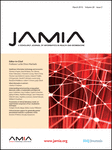
JOURNAL OF THE AMERICAN MEDICAL INFORMATICS ASSOCIATION
Scope & Guideline
Exploring the Future of Medicine through Informatics Excellence
Introduction
Aims and Scopes
- Health Informatics and Data Science:
JAMIA publishes research related to the utilization of health informatics and data science methodologies to enhance patient care, including the development of predictive models, machine learning applications, and natural language processing techniques. - Clinical Decision Support Systems (CDSS):
The journal emphasizes the design, implementation, and evaluation of clinical decision support systems that aid healthcare providers in making informed decisions by delivering relevant patient data and evidence-based guidelines. - Interoperability and Data Sharing:
Research focused on improving interoperability among health information systems and facilitating seamless data sharing across platforms is a key area of interest, aiming to enhance the integration of electronic health records (EHRs) in clinical practice. - Patient-Centered Care and Engagement:
JAMIA supports research that explores patient engagement through digital health tools, including patient portals, telehealth, and mobile health applications, promoting shared decision-making and personalized care. - Public Health Informatics:
The journal encompasses studies that leverage informatics to address public health challenges, including surveillance systems, health information exchange, and the impact of social determinants on health outcomes. - Ethics and Equity in Health Informatics:
Research addressing the ethical implications of health informatics practices, including privacy concerns, data governance, and strategies to reduce health disparities, is a significant focus area.
Trending and Emerging
- Artificial Intelligence and Machine Learning Applications:
There is a marked increase in research focused on the application of artificial intelligence and machine learning in healthcare, including predictive analytics, natural language processing, and automated decision-making tools. - Patient-Generated Health Data:
The utilization of patient-generated health data, including data from wearables and mobile applications, is emerging as a crucial area of research, emphasizing the importance of patient engagement and self-management. - Telehealth and Remote Patient Monitoring:
The COVID-19 pandemic has accelerated interest in telehealth and remote patient monitoring solutions, leading to a surge in studies evaluating their effectiveness and integration into standard care practices. - Data Privacy and Ethical Considerations:
Research addressing privacy concerns and ethical implications of health data usage is on the rise, reflecting growing awareness of the need for responsible data management and patient consent. - Social Determinants of Health and Health Equity:
Emerging themes in the journal increasingly focus on the intersection of health informatics and social determinants of health, aiming to address health disparities and improve equity in healthcare access and outcomes. - Interoperability Innovations:
There is a growing emphasis on innovative approaches to achieve interoperability among health information systems, facilitating better data exchange and integration across clinical platforms.
Declining or Waning
- Traditional Clinical Research Methodologies:
There has been a noticeable decline in publications focusing on traditional clinical research methodologies, as the field increasingly embraces advanced analytic techniques and machine learning models for data analysis. - Static EHR Interfaces and User Experience Studies:
Research centered on static electronic health record interfaces and basic user experience studies appears to be waning, as the field shifts towards more dynamic, user-centered design approaches and the integration of artificial intelligence. - Generalized Health IT Policies:
The focus on generalized health IT policies has decreased, with more emphasis now being placed on specific applications and case studies that demonstrate the impact of technology on healthcare delivery. - Basic Health Informatics Education:
Research related to basic health informatics education is declining as the field matures, with a greater emphasis on advanced training programs and practical applications in real-world settings.
Similar Journals
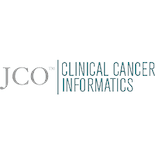
JCO Clinical Cancer Informatics
Advancing cancer care through innovative informatics.Welcome to JCO Clinical Cancer Informatics, an esteemed journal at the forefront of the intersection between oncology and health informatics. Published by Lippincott Williams & Wilkins, this journal is dedicated to advancing the understanding and application of cancer data through innovative informatics solutions. Since its inception in 2017, JCO Clinical Cancer Informatics has established itself as a critical resource for researchers, practitioners, and students, as evidenced by its high rankings in the 2023 Scimago Quartiles—Q2 in Cancer Research and Q1 in both Health Informatics and Oncology. With a commitment to open access, this journal aims to disseminate groundbreaking research findings that enhance cancer care and inform public health strategies. Positioned in the United States, it serves as a pivotal platform for sharing knowledge and fostering collaboration within the global cancer research community.

Healthcare Technology Letters
Pioneering breakthroughs in healthcare technology research.Healthcare Technology Letters is a leading open-access journal published by WILEY that has been at the forefront of disseminating cutting-edge research in the field of health informatics and health information management since its inception in 2014. With an E-ISSN of 2053-3713, this esteemed journal is recognized for its commitment to advancing knowledge and practice in healthcare technology, making it a vital resource for researchers, professionals, and students alike. The journal's scope encompasses a wide range of topics, including digital health solutions, data management, and innovative technologies that enhance patient care. It holds a respectable position in the academic community, featuring a Q3 ranking in both health informatics and health information management as of 2023, and consistently contributing to high-impact research evidenced by its Scopus rankings. By providing open access to its content since 2017, Healthcare Technology Letters ensures that valuable insights and breakthroughs can reach a broader audience, furthering the impact of its published work on the global health landscape.

JAMIA Open
Pioneering research in the realm of health informatics.JAMIA Open is an open-access journal dedicated to advancing the field of health informatics, published by Oxford University Press. Since its inception in 2018, the journal has provided a platform for novel research, reviews, and case studies that bridge the gap between healthcare and information technology. With an impressive impact factor and a current classification in the Q2 quartile for Health Informatics, JAMIA Open has established itself as a vital resource for researchers and practitioners alike, facilitating the dissemination of innovative findings that contribute to the evolution of healthcare systems. Based in the United States, the journal is committed to providing free and equitable access to high-quality research, thus promoting a collaborative and informed approach to tackling pressing health issues. As it continues to grow and evolve, JAMIA Open remains a cornerstone in the landscape of health informatics, appealing to a diverse audience of researchers, professionals, and students looking to inspire change in their fields.

Intelligent Medicine
Unlocking the potential of technology in medicine.Intelligent Medicine, published by Elsevier, is a leading open-access journal dedicated to advancing the fields of Artificial Intelligence, Biomedical Engineering, Health Informatics, and related areas within Medicine. Since its inception in 2021, it has quickly established itself among the top tier of academic publications, holding a commendable Q2 ranking in several categories, including a rank of #51 in Health Informatics and #104 in Medicine (Miscellaneous) as of 2023. The journal aims to disseminate innovative research that harnesses AI technologies to improve healthcare outcomes, bridging the gap between cutting-edge technology and medical practice. With its open-access model, Intelligent Medicine ensures broad dissemination of research findings, facilitating collaboration and knowledge sharing among researchers, practitioners, and students globally. Located in Amsterdam, Netherlands, this journal plays a pivotal role in shaping the future of intelligent healthcare solutions, inviting submissions that push the boundaries of conventional medicine through creative and impactful research.

Health Information Management Journal
Innovating Health Systems with Cutting-Edge ResearchHealth Information Management Journal, published by SAGE Publications Inc., is a premier academic resource dedicated to the intersection of health informatics, health information management, health policy, and leadership in health services. With an impressive track record since its inception in 2002, this journal steadily contributes to scholarly dialogue and innovation in the field, holding a commendable Q2 ranking in Health Informatics, Health Information Management, and Health Policy, and a distinguished Q1 ranking in Leadership and Management as of 2023. As a critical platform for researchers, professionals, and students, it fosters the dissemination of cutting-edge research and practical applications, bridging the gap between theory and practice. Though not an open-access journal, it provides a wealth of subscription-based resources that are invaluable for advancing knowledge and improving health systems globally. The journal’s commitment to high-quality, peer-reviewed content ensures that it remains a vital tool for anyone invested in the future of health information management.
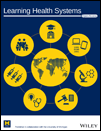
Learning Health Systems
Bridging technology and practice for better health outcomes.Learning Health Systems is a premier open access journal published by WILEY that has been at the forefront of innovation in the fields of Health Informatics, Health Information Management, and Public Health since its inception in 2016. With a dedicated focus on the intersection of clinical practice and health technology, this journal is pivotal for researchers, professionals, and students seeking to advance the knowledge base in these critical areas. The journal enjoys a robust reputation, boasting a Q1 ranking in multiple categories as of 2023, and ranking within the top percentiles in both Medicine and Health Professions across various metrics. Designed to foster collaboration and dissemination of cutting-edge research, Learning Health Systems is committed to bridging gaps between data science and practical health applications while providing an accessible platform for transformative ideas. It invites contributions that challenge existing paradigms and promote innovative solutions that enhance healthcare delivery and patient outcomes.
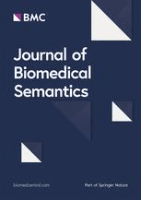
Journal of Biomedical Semantics
Pioneering Research in Biomedical Semantic TechnologiesThe Journal of Biomedical Semantics is a prestigious open-access journal published by BMC since 2010, dedicated to advancing the field of biomedical informatics through the lens of semantics. With an ISSN of 2041-1480, this journal caters to an international audience from its base in the United Kingdom. It focuses on the convergence of computer science, health informatics, and information systems, providing a vital platform for innovative research and knowledge dissemination. The journal is ranked in the second and third quartiles across several relevant categories in 2023, including Q2 in Computer Networks and Communications and Q3 in both Computer Science Applications and Health Informatics. With Scopus rankings highlighting its relevance in various subfields, this journal serves as a critical resource for researchers, professionals, and students alike, promoting high-quality, peer-reviewed articles on topics encompassing advanced computational methods and semantic technologies in healthcare. As a fully open-access resource, it ensures broad accessibility of groundbreaking research findings, making vital contributions to the ever-evolving landscape of biomedical semantics.
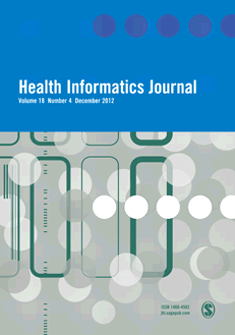
Health Informatics Journal
Advancing healthcare through innovative informatics.Health Informatics Journal, published by SAGE Publications Inc., serves as a premier platform for research and discussion in the dynamic field of health informatics since its inception in 1995. With an impressive Q2 ranking in the Health Informatics category and a notable 77th percentile ranking in the Scopus database, this journal provides an essential resource for academics and professionals alike. The journal's transition to Open Access since 2020 has further broadened its reach, ensuring that innovative research is accessible to a global audience. Covering a wide range of topics within health informatics, the journal aims to foster high-quality scholarly communication and facilitate the dissemination of cutting-edge insights that can help advance health care delivery and patient outcomes. With an ongoing commitment to excellence, the Health Informatics Journal is dedicated to enhancing the intersection of technology and healthcare through rigorous research and collaborative exploration.
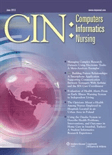
CIN-COMPUTERS INFORMATICS NURSING
Advancing Nursing Through Innovative InformaticsCIN-COMPUTERS INFORMATICS NURSING is a distinguished journal that publishes cutting-edge research at the intersection of nursing and information technology. Published by Lippincott Williams & Wilkins, the journal has been a pivotal platform since 2002, catering to the needs of health informatics professionals and nursing researchers. With an impressive impact factor and ranked within Q2 in Nursing (miscellaneous) and other relevant categories, it serves as a key resource for advancing knowledge and best practices in the field. The journal's inclusion in important databases ensures broad visibility and access to the latest findings that influence healthcare delivery. CIN-COMPUTERS INFORMATICS NURSING welcomes a diverse range of articles, including empirical studies, reviews, and innovative methodology approaches, making it an invaluable asset for clinicians, educators, and scholars dedicated to enhancing nursing informatics and improving patient outcomes.

International Journal of E-Health and Medical Communications
Bridging technology and health for a brighter future.Welcome to the International Journal of E-Health and Medical Communications, a pivotal publication designed to bridge the gap between health informatics and computer science applications. Published by IGI Global, this journal serves as a platform for innovative research and insights into e-health technologies, health communication strategies, and the evolving role of digital tools in enhancing healthcare delivery and management. With an ISSN of 1947-315X and E-ISSN 1947-3168, it caters to an audience keen on advancing the intersection of technology and health, as evidenced by its respectable standings in Scopus rankings—positioned in the 64th percentile in Health Informatics and 63rd in Computer Science Applications. Over its publication history from 2010 to 2024, the journal has consistently contributed to significant discussions and advancements within these fields, highlighted by its Q3 quartile ranking in 2023. Join a community of researchers, professionals, and students dedicated to the ongoing exploration of e-health, as we collectively navigate the complex landscape of healthcare innovation.